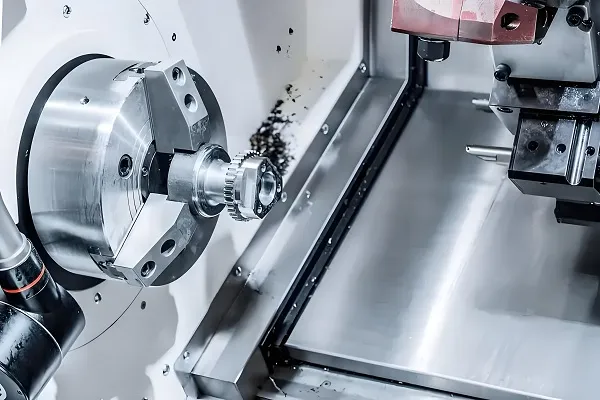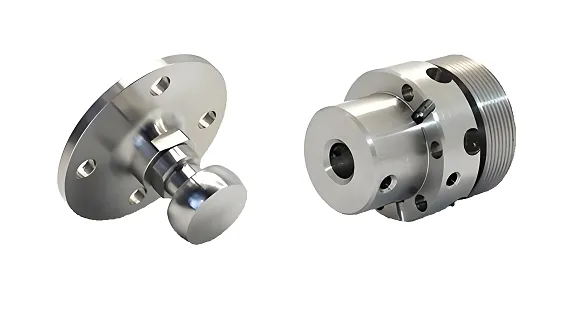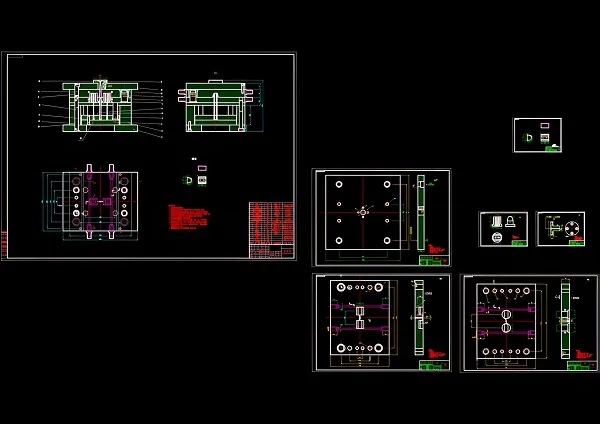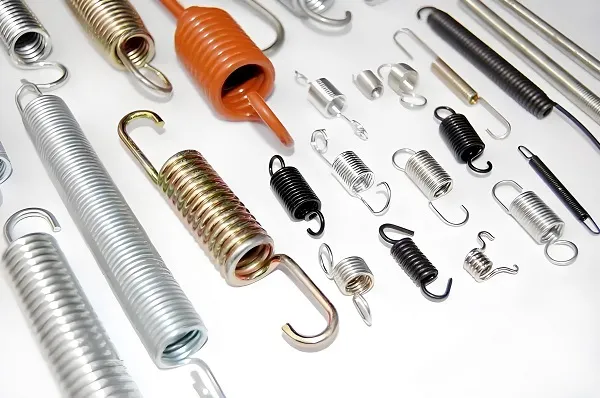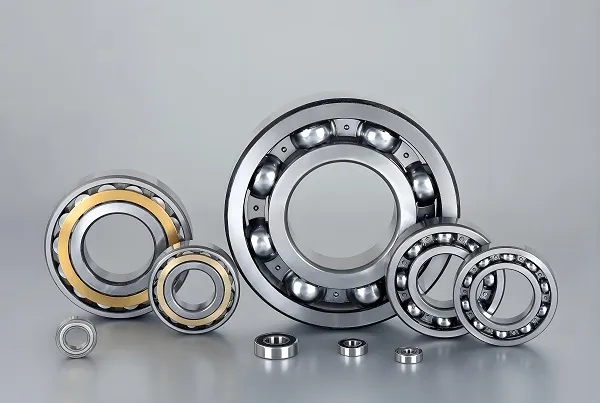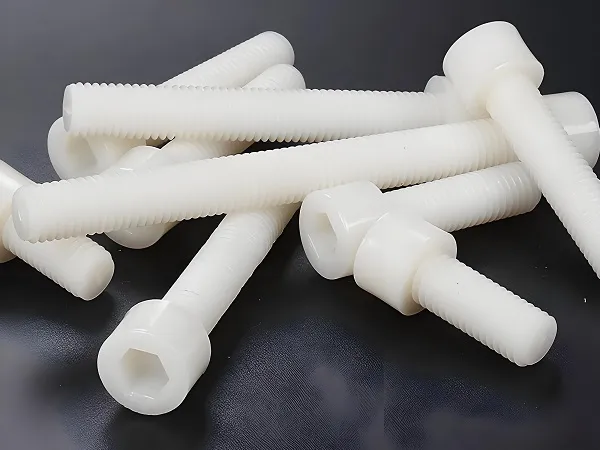In modern manufacturing, the combination of material selection and processing technology plays a decisive role in product performance. Nickel – based alloys, with their excellent properties, have become key materials in numerous fields. Computer Numerical Control (CNC) processing technology provides a reliable means for precisely shaping nickel – based alloy parts. This article will delve into the technical essentials, application fields, and relevant quality control of custom CNC nickel – based alloy parts.

Nickel – based Alloys: Properties and Advantages
Nickel – based alloys are a class of high – performance materials with nickel as the matrix (usually with a content greater than 50%) and the addition of various alloying elements such as chromium, molybdenum, and cobalt. They possess a series of excellent properties, enabling them to perform outstandingly in extreme environments.
High – temperature Strength: Nickel – based alloys can maintain good mechanical properties in high – temperature environments. For example, in high – temperature components such as aero – engine and gas turbine applications, they can withstand temperatures exceeding 1000°C and still maintain sufficient strength to ensure the normal operation of the components.
Corrosion Resistance: In fields such as the chemical industry and marine engineering, materials are exposed to various corrosive media. Nickel – based alloys have excellent resistance to corrosive environments such as acids, alkalis, and salts. For instance, in seawater desalination equipment in the marine environment and reaction kettles in petrochemical industry, nickel – based alloys can effectively extend the service life of equipment and reduce maintenance costs.
Oxidation Resistance: In high – temperature and oxygen – containing environments, a dense oxide film can form on the surface of nickel – based alloys, preventing further oxidation and ensuring the stability and long – term performance of the materials. This property makes them widely used in high – temperature furnaces, heat – treatment equipment, etc.
Challenges and Solutions in CNC Machining of Nickel – based Alloys
Despite the superior performance of nickel – based alloys, due to their special physical and mechanical properties, they face many challenges during CNC machining.
Tool Wear: Nickel – based alloys are hard and viscous, causing significant wear on tools during machining. The solution is to use high – performance tool materials, such as carbide – coated tools (such as TiAlN or AlTiN coatings). These tools can withstand high temperatures and high cutting forces, effectively improving tool life. At the same time, reasonably optimize the tool geometry to ensure a sharp cutting edge and reduce cutting forces and heat generation.
Cutting Heat Management: Nickel – based alloys have low thermal conductivity, and the heat generated during machining is difficult to dissipate, which can easily lead to tool damage and workpiece deformation. Using a high – pressure cooling system to precisely spray coolant onto the cutting area can effectively reduce the cutting temperature. It also aids in chip removal, making the cutting process smoother. In addition, appropriately reducing the cutting speed and feed rate can also reduce heat generation.
Work – hardening: Nickel – based alloys are prone to work – hardening during machining, increasing the difficulty of subsequent processing. By reducing the cutting depth, using sharp tools, and replacing tools in a timely manner to maintain the cutting edge state, the degree of work – hardening can be effectively reduced to ensure processing quality.
Equipment Requirements: Machining nickel – based alloys requires CNC machine tools with good rigidity and high power to ensure stable machining accuracy when cutting high – strength materials. Equipped with an advanced machine tool control system, it can adjust cutting parameters in real – time to meet the processing requirements of nickel – based alloys. Multi – axis CNC machine tools, such as 5 – axis machining centers, can achieve one – time processing of complex – shaped parts, reducing the number of clamping times and improving machining accuracy and efficiency.
Process Flow of Custom CNC Nickel – based Alloy Parts
Design and Consultation: Customers communicate with manufacturers, providing part design drawings or conceptual schemes. Manufacturers evaluate the applicability of nickel – based alloy materials based on the part’s usage environment and performance requirements and provide professional advice.
Material Selection: According to the specific requirements of the part, select the appropriate nickel – based alloy grade. For example, Inconel 625 is often used in the marine and chemical industries because of its excellent corrosion and oxidation resistance; Inconel 718 is widely used in the aerospace field due to its higher strength and fatigue resistance.
Programming and Simulation: Use CAD/CAM software to program the CNC machine tool, accurately planning tool paths, cutting speeds, feed rates, etc. For complex parts, advanced simulation software is used to simulate the machining process, identify potential problems in advance, and optimize the machining plan to avoid errors and losses during actual processing.
Manufacturing: Process on high – precision and high – rigidity CNC machine tools. According to the part shape and process requirements, flexibly use various processing techniques such as milling, turning, drilling, and grinding to ensure that the part dimensions and surface quality meet the design standards.
Quality Inspection: After processing, conduct a comprehensive quality inspection of the parts. Use a Coordinate Measuring Machine (CMM) to accurately measure the part dimensions to ensure that the deviation from the design dimensions is within the allowable range; perform surface roughness inspection to ensure that the surface quality of the part meets the usage requirements; for critical parts, non – destructive testing techniques such as ultrasonic flaw detection and X – ray flaw detection may also be used to detect internal defects and ensure reliable part quality.
Application Fields of Custom CNC Nickel – based Alloy Parts
Aerospace: In key parts of aero – engines such as turbine blades, combustion chamber components, and aircraft landing gear, nickel – based alloy parts ensure the efficient operation of the engine and the safe flight of the aircraft in complex environments, thanks to their high – temperature strength, corrosion resistance, and lightweight advantages.
Energy Field: In the petrochemical industry, nickel – based alloy parts are used to manufacture reaction kettles, pipelines, valves, etc., to resist the erosion of corrosive media; in the nuclear power field, they are used in heat exchangers and core components of nuclear reactors to ensure reliable operation in high – temperature, high – pressure, and high – radiation environments.
Medical Devices: Due to the good biocompatibility and corrosion resistance of nickel – based alloys, they are often used to manufacture implantable medical devices such as heart stents and artificial joints, ensuring human health and safety.
Marine Engineering: The marine environment is characterized by high salinity and humidity, which is highly corrosive to materials. Nickel – based alloy parts are widely used in key components of seawater desalination equipment and offshore oil exploration platforms, extending the service life of equipment and reducing maintenance risks.
Quality Control and Continuous Improvement
In the production process of custom CNC nickel – based alloy parts, a strict quality control system is of great importance. Starting from raw material procurement, conduct composition analysis and performance testing on each batch of nickel – based alloy materials to ensure that the materials meet the standards. During the processing, by monitoring processing parameters in real – time, regularly calibrating machine tool accuracy, and increasing the frequency of process inspections, processing deviations can be detected and corrected in a timely manner. In the finished product inspection stage, use a variety of advanced testing methods to conduct a comprehensive inspection of the parts. Only parts that fully meet the quality standards can enter the market.
At the same time, with the continuous progress of science and technology, manufacturers continuously explore new technologies and processes, such as optimizing tool coating technology, introducing advanced cooling and lubrication systems, and developing more accurate processing simulation software, etc., to further improve the quality and efficiency of CNC – processed nickel – based alloy parts and meet the ever – evolving market demands.
Custom CNC nickel – based alloy parts combine the excellent properties of nickel – based alloys with the high – precision and high – flexibility of CNC processing, playing an irreplaceable role in many high – end fields. By overcoming processing challenges, optimizing the process flow, and implementing strict quality control, manufacturers can provide customers with high – quality, customized nickel – based alloy parts, promoting technological progress and development in various industries.

